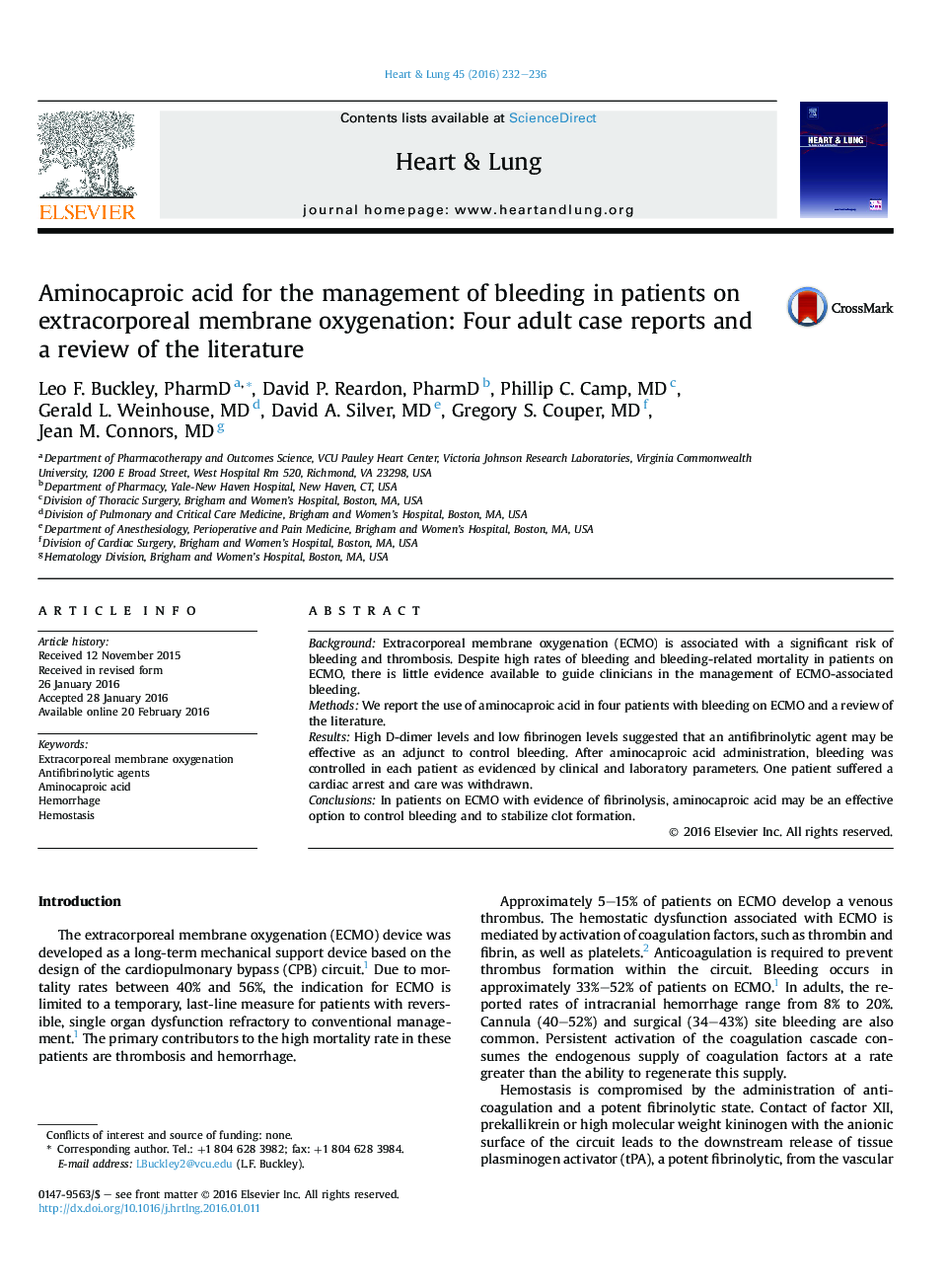| Article ID | Journal | Published Year | Pages | File Type |
|---|---|---|---|---|
| 2650303 | Heart & Lung: The Journal of Acute and Critical Care | 2016 | 5 Pages |
•In patients with refractory bleeding, EACA provided clot stabilization.•Antifibrinolytics may have unique efficacy in ECMO compared to other agents.•EACA may be safer than that of coagulation factor repletion.
BackgroundExtracorporeal membrane oxygenation (ECMO) is associated with a significant risk of bleeding and thrombosis. Despite high rates of bleeding and bleeding-related mortality in patients on ECMO, there is little evidence available to guide clinicians in the management of ECMO-associated bleeding.MethodsWe report the use of aminocaproic acid in four patients with bleeding on ECMO and a review of the literature.ResultsHigh D-dimer levels and low fibrinogen levels suggested that an antifibrinolytic agent may be effective as an adjunct to control bleeding. After aminocaproic acid administration, bleeding was controlled in each patient as evidenced by clinical and laboratory parameters. One patient suffered a cardiac arrest and care was withdrawn.ConclusionsIn patients on ECMO with evidence of fibrinolysis, aminocaproic acid may be an effective option to control bleeding and to stabilize clot formation.
